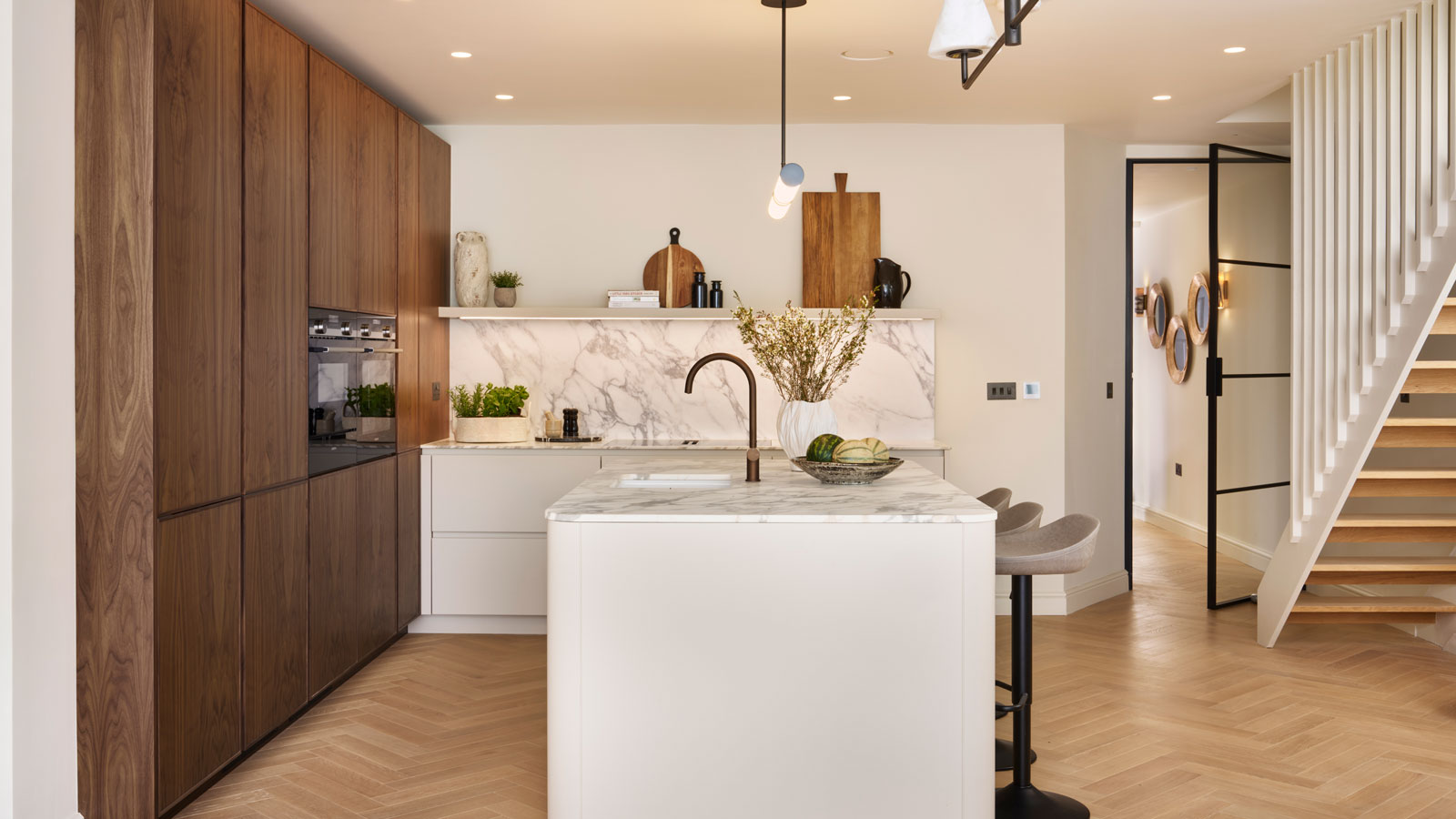Which heating system should I install? From heat source to emitters our expert guide will help you choose
From heat source to heating controls, there are plenty of factors involved in choosing a heating system for your home. We explore what's on offer and how to make sure you pick the right one
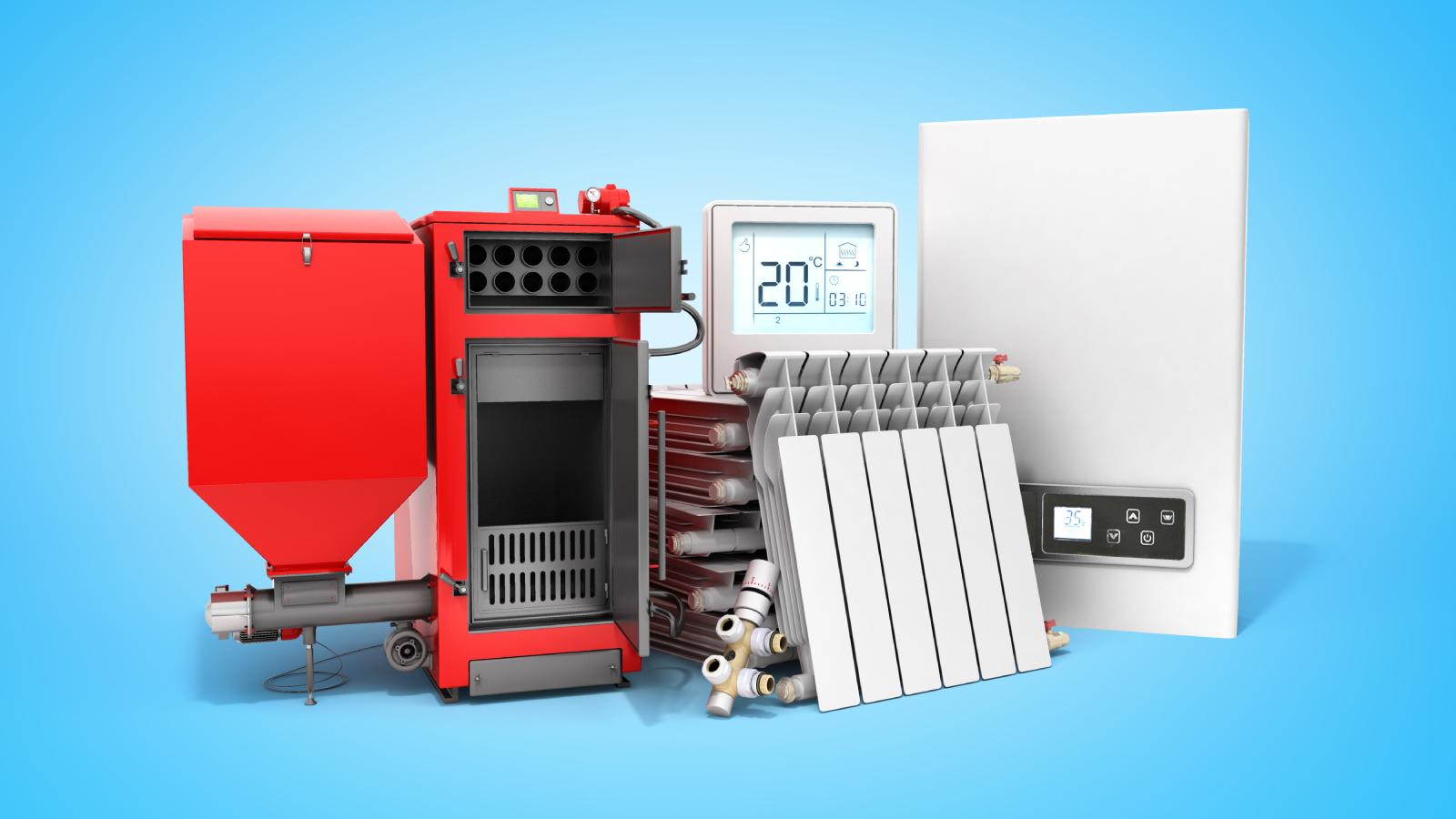
Choosing the right heating system for your self build or renovation isn't just a case of weighing up if you want radiators or underfloor heating.
Instead, it's a decision that will be based on a number of factors ranging from how much heat and hot water you need, what type of fuel you will use to power your heating system, and what your budget is for both installation and long term running costs.
It's also a choice that will need to be guided by professionals, but understanding the factors involved will help ensure you end up with a heating system that's designed to best suit the needs of you, and your home.
What to take into consideration when choosing a heating system
When choosing a heating system, there are three main factors to start considering, says Adam Knight, lead engineer at BOXT.
"it’s important to understand how it works, how efficient it is, and whether it suits your home. Some systems are more complex to install for example, and may require additional indoor space or outdoor units," says Adam, "while others offer simpler setups.
"In the UK, gas boilers remain the most common type of boiler, as they are familiar, widely available, and relatively straightforward to install. However, newer low-carbon systems such as heat pumps can offer greater energy efficiency and lower emissions over time, depending on your home.
"You should weigh up energy efficiency, running costs, installation costs and environmental impact, as more efficient systems can help reduce both bills and carbon emissions in the long term," advises Adam.
Bring your dream home to life with expert advice, how to guides and design inspiration. Sign up for our newsletter and get two free tickets to a Homebuilding & Renovating Show near you.
"It’s also worth considering how well each option fits your property size, layout, and daily usage; what works for a smaller home may not be ideal for a larger one, for example.
"Finally, think about long-term value, including expected lifespan and maintenance needs," he suggests, "to ensure your choice remains reliable and cost-effective for years to come."
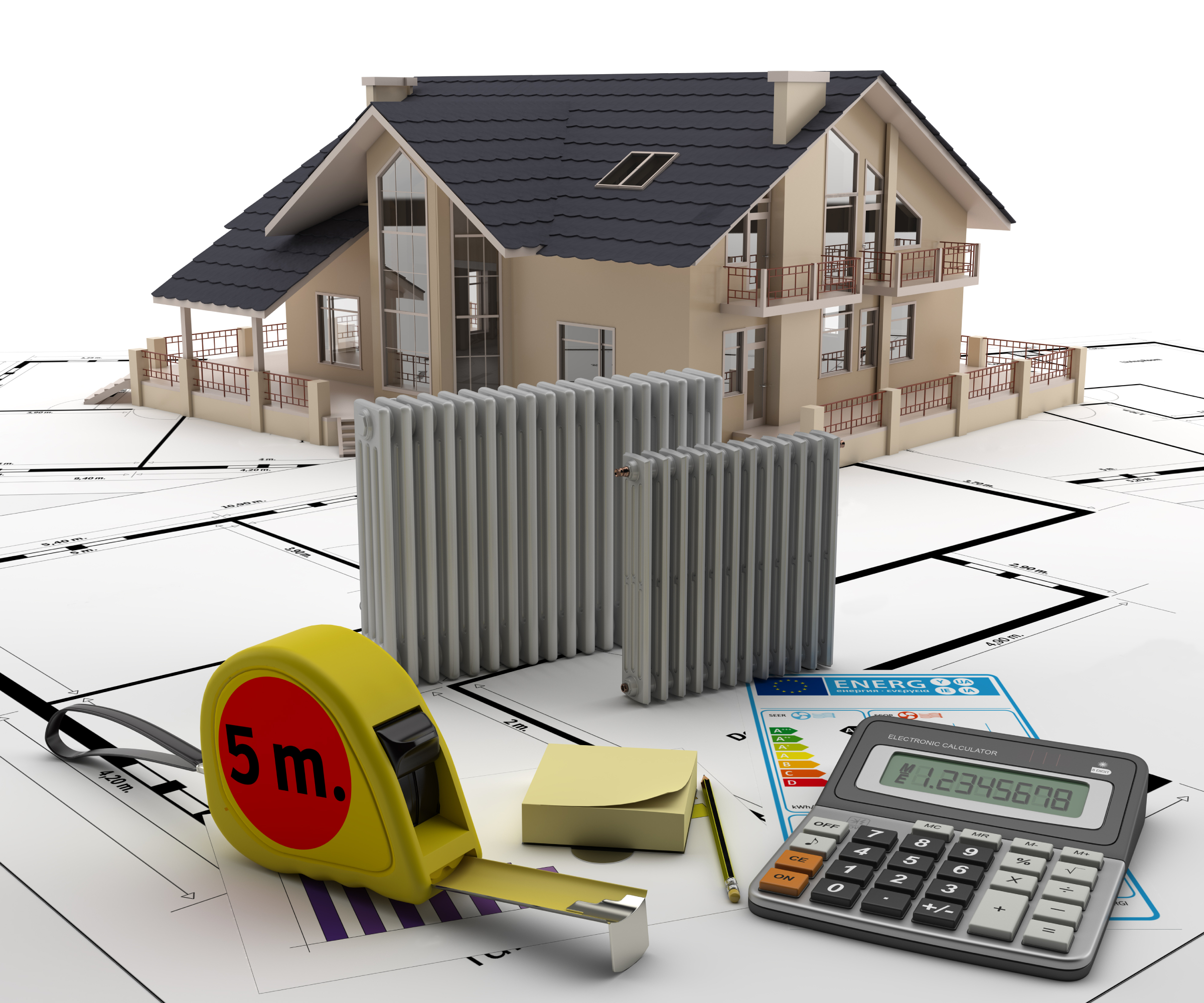
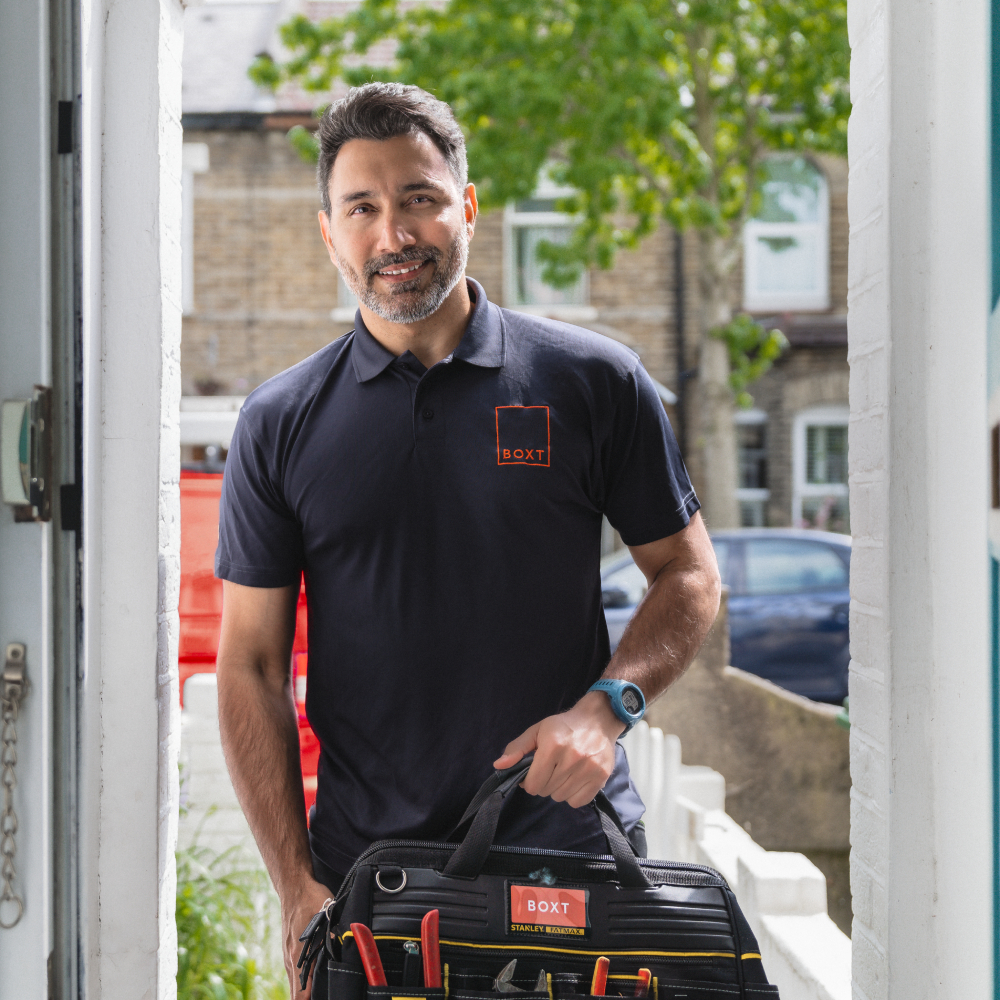
Adam Knight is a Lead Engineer at heating and cooling experts, BOXT. Adam brings over 17 years of industry experience, including 14 years at British Gas specialising in auditing, gas qualifications, and incident investigations, and now leads BOXT’s Tech Survey Team with specialist training in air conditioning and heat pump systems.
Calculating your needs
Whether you're renovating a house, figuring out how to heat an extension or looking at heating your self build, one of the first steps towards choosing a heating system will be to understand how much heat and hot water you need to generate.
This stage is crucial in order to ensure you don't install a system that fails to heat your home adequately and ends up costing you more in the long run.
But how is this calculated?
"A qualified heating engineer should always assess your home to determine the correct system size for both comfort and efficiency," says Adam Knight. "This involves calculating the property’s heat loss by considering its size and layout, the quality of insulation, the type of windows, the number of radiators or heating emitters, and your preferred indoor temperatures.
"A well-insulated home is essential," notes Adam, "as the heating system must be able to emit enough heat to maintain an even temperature throughout."
Your boiler size will also be assessed based on the property size, number of bedrooms and bathrooms and how much water it's estimated you'll need based on the inhabitants.
How a heating system works
At its simplest level, you can think of a heating system in two parts: the bit that generates the heat, and the bit that distributes that heat around the different areas of your home.
In every instance, you'll be looking for heat to serve two purposes – space heating for keeping you warm, and hot water. So, the simplest of all systems will have:
- a boiler to heat up water including a pump to move it around
- piping to move the warm water around your house
- emitters in the form of radiators or underfloor heating
Then, in some cases you'll also need hot water storage, unless you're opting for a combi boiler vs a system boiler, as they do not require a hot water store. This will in turn decide if you need a vented or unvented cylinder.
Vented cylinders do not maintain any pressure, so ensuring good pressure at the tap or shower relies on something else, typically a header tank in the loft or a pump.
You’ll have a copper cylinder in your airing cupboard and an expansion tank in the loft, as well as a cold water storage tank.
Unvented cylinders, which include thermal stores, do maintain pressure and deliver water to the outlet at mains pressure. But they come with a higher price tag and an annual maintenance bill. You’ll have a white cylinder in your airing cupboard and nothing in your loft.
A thermal store will also maintain water at layers of different temperatures (called stratification) which is useful for multiple heat sources and the requirements of different outlet types (i.e. underfloor heating and hot water).
Choosing a heat source
One of the most integral decisions you'll make when choosing a heating system is whether to go with a standard gas, oil or LPG boiler, or if you go down the route of installing a renewable energy system, and if so, whether it will be the sole heat source.
A gas boiler for example, can be supplemented by solar thermal panels. A ground source heat pump with solar panels is also an option, as are other combinations, meaning you could end up with a variety of sources heating your home.
If mains gas is available, it can of course be difficult to ignore this. "For many homes, gas remains an affordable, efficient and familiar way to heat their property," confirms Adam Knight. "Upgrading to a modern, high-efficiency boiler can reduce energy use and emissions, offering a quick and cost-effective route to improved home heating.
"Combi boilers are a popular choice for smaller homes, as they provide heating and hot water directly from the mains without a separate cylinder," says Adam, "but they’re not always the best fit - in larger homes or those with multiple bathrooms, a combi boiler may struggle to supply enough hot water at once, making a system or regular boiler a better option."
That said, the need to move towards low carbon heating is still very much the advised route, and if you can, a renewable energy source will usually provide a better solution in the long run, although some homes may require additional work before switching.
"Heat pumps and other renewable systems tend to be better suited to well-insulated or newly built homes designed with low-temperature heating in mind," says Adam, meaning older or poorly insulated ones, may require significant upgrades before a heat pump can operate to their full potential.
But, with advances in technology and the developments in high temperature heat pumps, options are available for every project, and the best, and perhaps only way to make the right decision is to start with the heat requirement and then layer in all the other factors, rather than considering the heating source as a single entity.
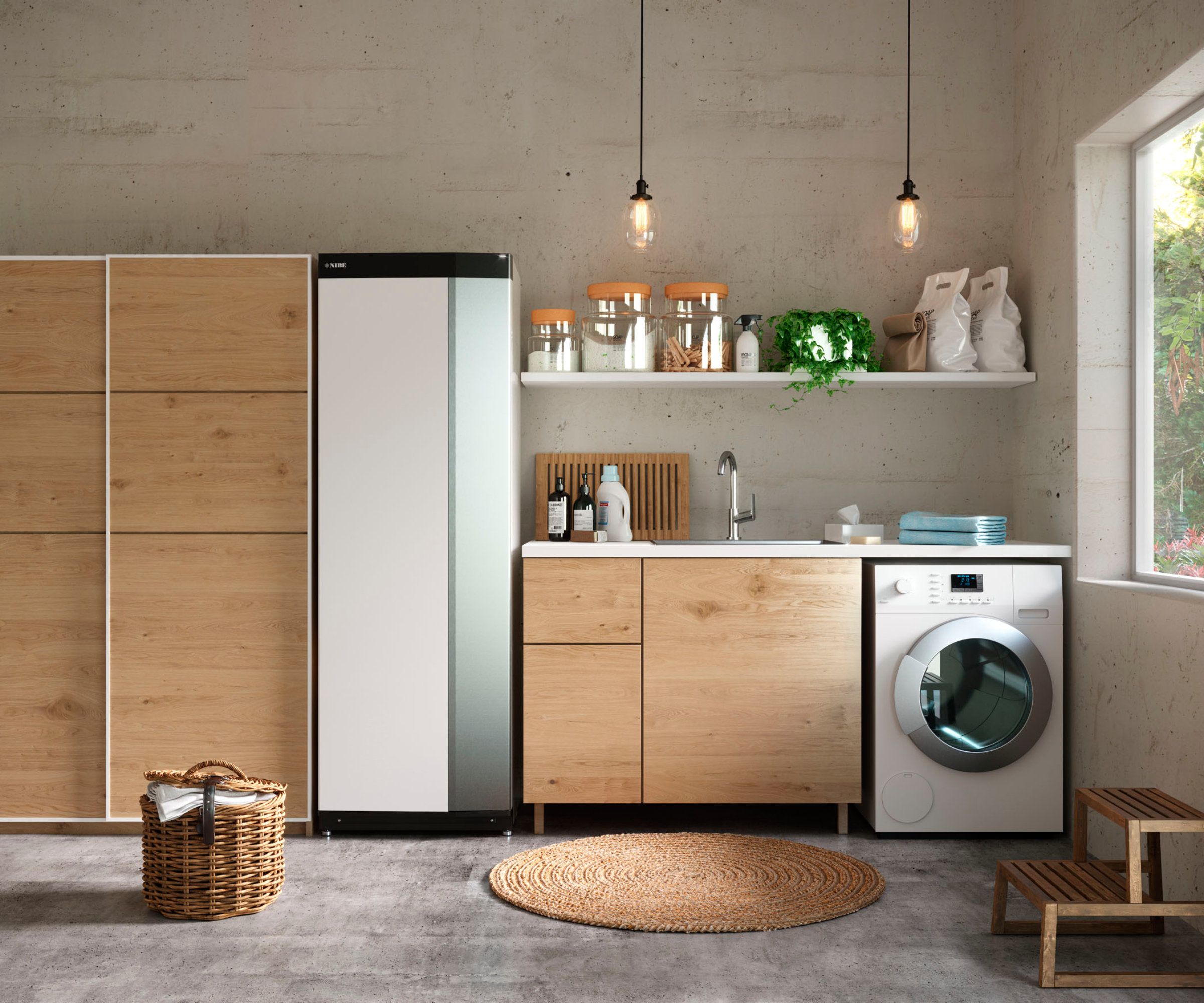
Which heat emitter options are available?
As well as understanding how much heat and hot water you need, when designing your self build or extending your home, how you want to distribute that heat around your home will have a major influence on the heating system you choose.
Choosing emitters will vary depending on a number of factors, says Adam Knight.
"Emitters, the components that distribute heat around your home, such as radiators, underfloor heating, or fan coil units, must be matched to the operating temperature of your heating system.
"Traditional boilers work effectively with high-temperature emitters like standard radiators, which provide fast, responsive heating," he explains.
"Heat pumps, however, operate at lower flow temperatures and generally perform best with larger surface-area emitters that deliver a more gentle, consistent warmth, meaning underfloor heating and fan coil units are ideal to select.
"If an air-to-water heat pump is to be used for both heating and cooling," he adds, "the system must be designed with the correct emitters from the outset, as it requires correctly installed underfloor heating or fan coil units, and wouldn’t work with radiators that most UK homes have."
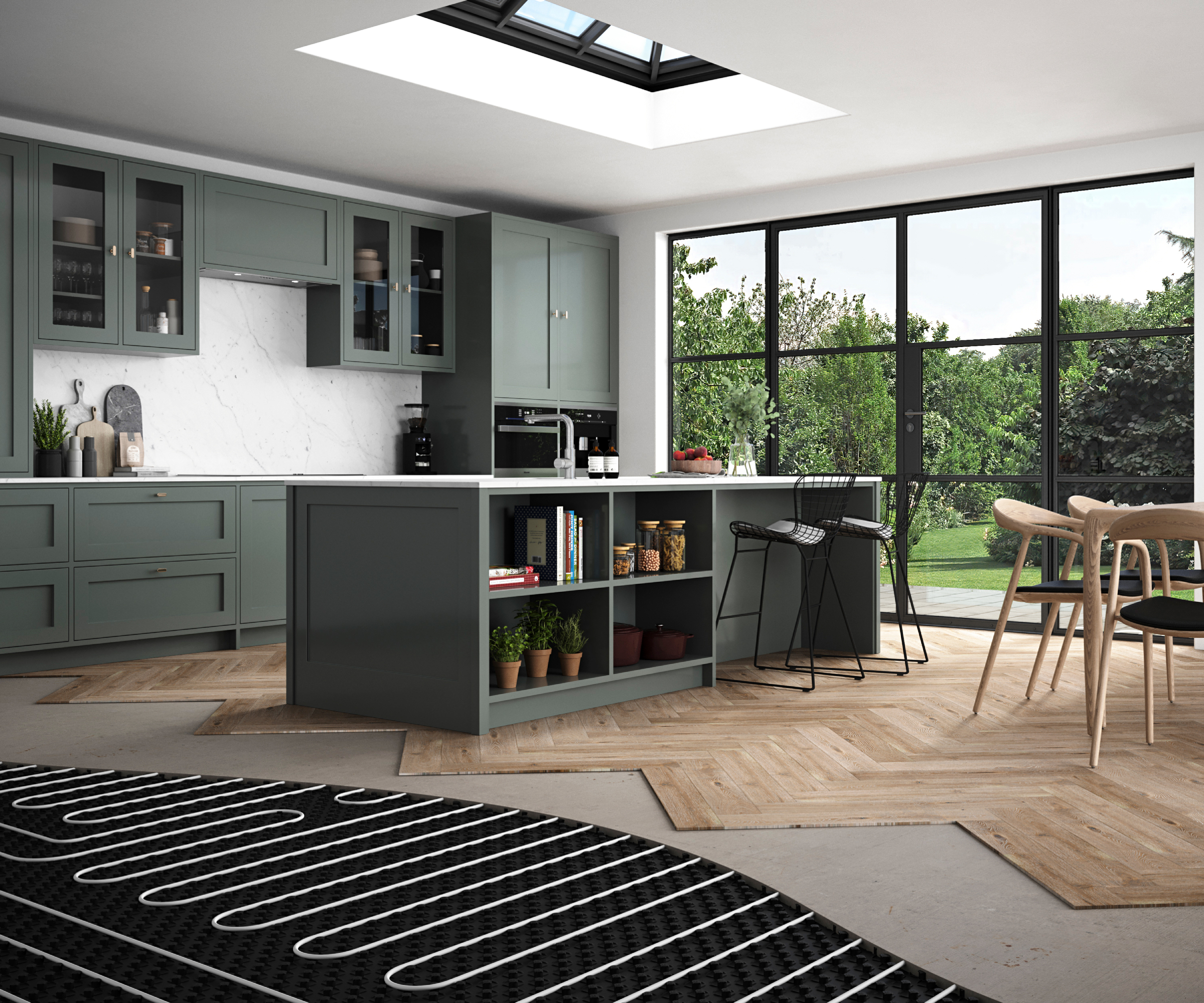
Heating controls
The control system you choose for your heating system will be largely dictated by what is being installed.
But, at the very least you'll need the essentials of a boiler thermostat and a room thermostat. "The boiler thermostat controls water temperature to the radiators, while the room thermostat keeps your home at a steady, comfortable level," explains Adam Knight.
"We also recommend thermostatic radiator valves (TRVs) and a timer or programmer to improve efficiency," he adds. "Plus, building regulations state that all rooms should have thermostatic controls, either through the main thermostat or TRVs, to help maintain comfortable temperatures and reduce energy use."
As it is uncommon that a house will need every room to be heated to the same temperature at the same time (think guest bedrooms which only receive occasional use), having a controllable room by room system will also help you keep a lid on your energy bills.
"In addition, neglecting controls can lead to common heating problems like stuck TRVs, disconnected thermostats, or seized zone valves," warns Adam Knight.
And while these are issues that regular checks and servicing can easily prevent, for added convenience, considering a smart heating system could also be a wise addition to your plans.
"Smart thermostats let you manage your heating remotely and include features such as holiday mode and energy-saving automation, and are strongly recommended when designing and installing a new system," notes Adam.
"Smart thermostats are the most energy-efficient option available, offering greater flexibility and control than standard thermostats. They allow you to monitor and adjust your heating remotely via a phone or tablet, and even learn your routine over time to optimise comfort and efficiency. Installing smart controls from the outset helps your system run more efficiently, saving energy and reducing running costs in the long term."
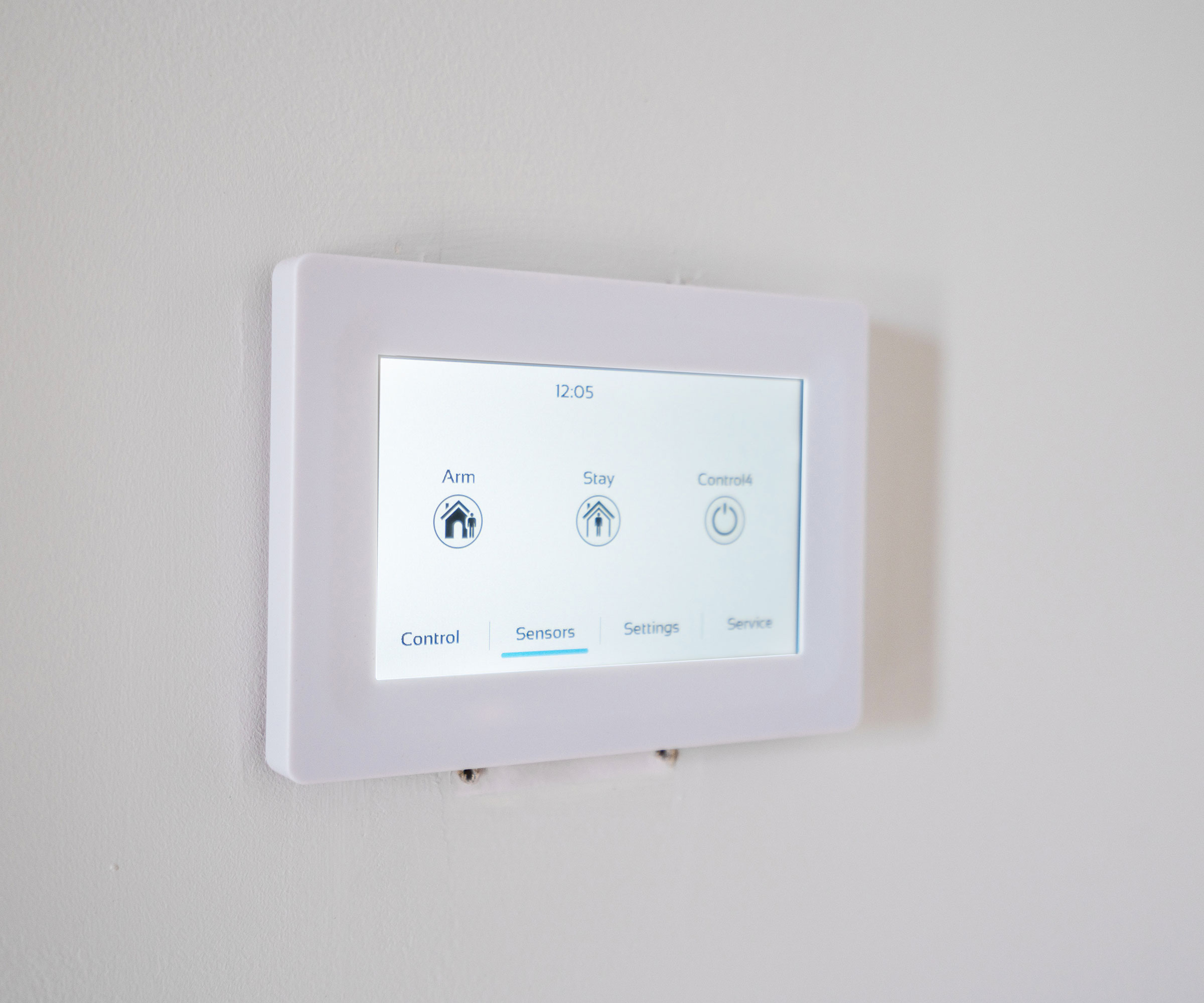
Heating system costs
How much you have, or want to spend, will also play a part when deciding which heating system you need for your project.
While there's no question that mains gas led central heating costs will come in cheaper than air source heat pump costs for example, you'll also need to factor in elements such as grants available via the Boiler Upgrade Scheme, whether the additional cost of solar panels to help power your heating are worth considering, and if the ever-rising energy costs for electricity and gas mean renewables are the only way forward.
For more information on what you can expect to pay for a new heating system, you can also head to our additional guides regarding off-grid heating solutions, such as ground source heat pump costs and biomass boiler costs.
If you're looking a self build it's also worth costing up a heating, ventilation and air conditioning (HVAC) system as this won't just keep you home warm in winter, but will keep it cool in summer and ensure it's well ventilated too.
And, if you want to understand from a first hand point of view what different heating systems are like, find out what I wish I knew before I installed a biomass boiler, and understand what changes renewables expert, David Hilton has and will make, having lived with his air source heat pump for over seven years.

Sarah is Homebuilding & Renovating’s Assistant Editor and joined the team in 2024. An established homes and interiors writer, Sarah has renovated and extended a number of properties, including a listing building and renovation project that featured on Grand Designs. Although she said she would never buy a listed property again, she has recently purchased a Grade II listed apartment. As it had already been professionally renovated, she has instead set her sights on tackling some changes to improve the building’s energy efficiency, as well as adding some personal touches to the interior.
